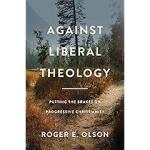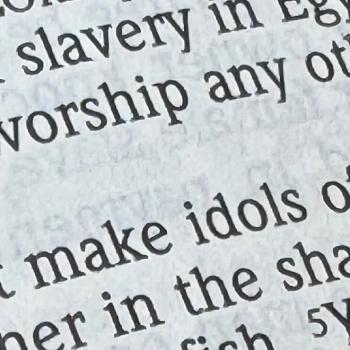Several years ago Christian Bobin said, "Spiritual life is a matter of appetite: find food that will aid the exiled soul to continue its return home" (Le Monde: Les Philosophes et le Dieu March-April 2009, 51). Taking Bobin's advice means deciding where home was and then finding food that will feed the soul that is working to get back there.
Latter-day Saint ("Mormon") belief includes not only belief in an afterlife but in a pre-existence: "Man was also in the beginning with God" (Doctrine and Covenants 93:29). We take literally what was almost certainly metaphorical for Bobin: Our home was with God. The foods that will aid us to return to that home are trust in him and his Son, followed by Christian life, including repentance, prayer and fasting, study, good works (which means life by the Holy Spirit).
Presumably the Christian life is one of humility and service with an eye toward raising up those who are low. The Book of Mormon explains the connection between our trust in God and Jesus Christ, on the one hand, and Christian life, on the other. There King Benjamin, an early prophet-king, tells us that salvation comes to those who recognize God's goodness, power, and wisdom as well as his patience and long-suffering toward mortals. They also recognize that an atonement was prepared "from the foundation of the world" so that human beings who put their trust in the Son of God can receive salvation (Mosiah 4:6).
Given that origin of salvation, King Benjamin teaches that if we recognize God's sovereignty and goodness and love and if we have received a remission of our sins, then if we remember his greatness and our own unworthiness, remaining faithful, we will be filled with his love and we will retain the remission of sins (Mosiah 4:11). Exiled into the world by sin, we can return to our Father if we receive and retain a remission of that sin.
But not only will we retain a remission of our sin, we will grow in our knowledge of God and, therefore, of justice and truth (Mosiah 4:12)—and perhaps gaining a knowledge of God's justice and truth is not only a consequence of retaining a remission of sin. Perhaps it is its instantiation.
Benjamin follows his declaration of the results of the remission of sin with examples of what it means to know the justice and truth of God: we will live peaceably with one another, caring for our children and teaching them to obey God and to love and serve each other.; we will succor those who are in need and give to those who ask for help (Mosiah 4:13-16). Divine truth and justice amounts to peaceful life, good families, and succor for those in need.
The last of these is so important that Benjamin expands on it: Perhaps someone hearing his sermon will think, "Yes, but the poor have earned their poverty. Their suffering is a natural result of their bad choices." But anyone who thinks in that way "hath great cause to repent" and is in danger of eternal damnation, losing his or her interest in the kingdom of God (Mosiah 4:17-18).
After all, we are all beggars before the throne of God, depending on his grace for our lives and the remission of our sins. He gives us life and whatever we claim as our own, and more important, he pours his Spirit out on us, answering our petitions for forgiveness. It is only just, therefore, that we share our substance, whatever it is that makes us what we are, including of course our wealth. It is equally just that if we refuse to do that we stand condemned by God: our substance will perish with us (Mosiah 4:19-23), presumably because it will turn out that we are made of nothing real. If we refuse to give to those in need, we are made of nothing.
King Benjamin's teaching is that our return to God requires the spiritual food of repentance from sin and of the good life that comes from and demonstrates that repentance.
But we can understand our exile in another way. It isn't only that we once lived, premortally, in the presence of God. It is especially that sin has exiled us from God in this world. On both understandings, to be in the world is to be in exile, but the second understanding reminds us of the causative role that sin plays in our exile. It is not only that we no longer dwell as spirits in the presence of the Father. It is that we have cut ourselves off from his Spirit by our sin.





